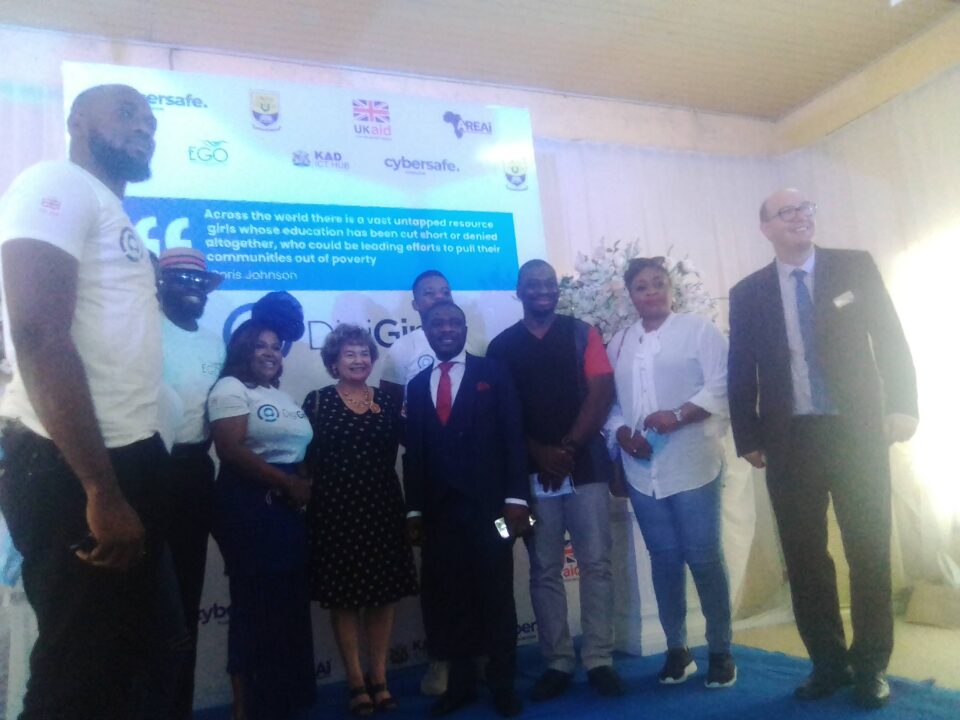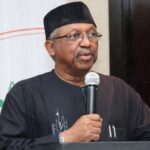From Cyriacus Nnaji, Lagos
United Kingdom (UK) in partnership with Cybersafe Foundation, a Tech savvy organization with the interest of the girl-child at heart has unveil a programme called Digi-Girls designed for digital inclusion.
Speaking at the event, Catriona Laing, British High Commissioner to Nigeria, stated that the United Kingdom is committed to being a global science and technology partner, working with others to develop solutions to the world’s most pressing challenges, including on digital skills.
She asserted that in Nigeria, science, technology and innovation provide opportunities for sustainable economic transformation – not least through the dynamic tech sector.
Liang maintained that the UK firmly believes in the future growth story of Nigeria’s digital sector, adding that currently the ICT sector contributes about 15% to Nigeria’s GDP.
To continue to drive this growth, she said, Nigeria needs a combination of increased access to affordable, faster and better quality internet, and an encouraging regulatory environment. “To continue to drive this growth, Nigeria needs a combination of: increased access to affordable, faster and better quality internet, an encouraging regulatory environment, a skilled talent pool, and access to investment and partnership opportunities,” She stated.
She stated that the UK is working with the Nigerian Government to promote Nigeria’s digital economy and drive the growth, primarily through the UK Digital Access Programme, the UK-Nigeria Tech Hub Network and the West Africa Research and Innovation Hub. She said “Through the Digital Access Programme, we are working with the Federal Government, state governments and policy makers on removing systemic barriers to connectivity expansion – for example the Right of Way charges that make laying broadband more expensive.
“We are pleased to say that a number of states have reduced or ended these charges all together, which is excellent progress, and we would encourage other states to consider doing the same,” Liang said.
She sais improving girls’ access to education is a key part of the UK’s G7 Presidency and is at the heart of global efforts to build back better from the pandemic.
Confidence Staveley, Founder of Cybersafe Foundation on her part said that lowering the digital gender divide in Nigeria has become a matter of urgency; adding that a recent USAID report, shows that over 90 percent of jobs worldwide have a digital component, and, without these skills, women are automatically disadvantaged and do not have the confidence to participate in the digital workforce.
Staveley added that DigiGirls is a program she believed would contribute to ensuring safe and responsible use of digital, tackle gender-based violence through economic empowerment of women, support inclusive and sustainable economic recovery post pandemic, increase the number of digitally skilled Nigerians, foster lasting poverty reduction and alleviate tough economic realities for women and girls in Nigeria. Ultimately, the goal is to close the digital gender gap that is causing unemployment/underemployment of women and girls especially for the underserved and vulnerable in our communities.
She disclosed that out of 12000 applications only 2400 girls could be absorbed for the programme due to limited space. “In few days of opening applications for this program, we received over 12,000 signups, proof that DigiGirls is a timely and much needed intervention. Sadly, we could only accept 2400 of these women and girls across Nigeria, with only 10% learning on-site in our Lagos and Kaduna hubs. We will, through this program provide free basic to intermediate digital skills and soft skills training, mentorship, internship and job placement to our beneficiaries.”



